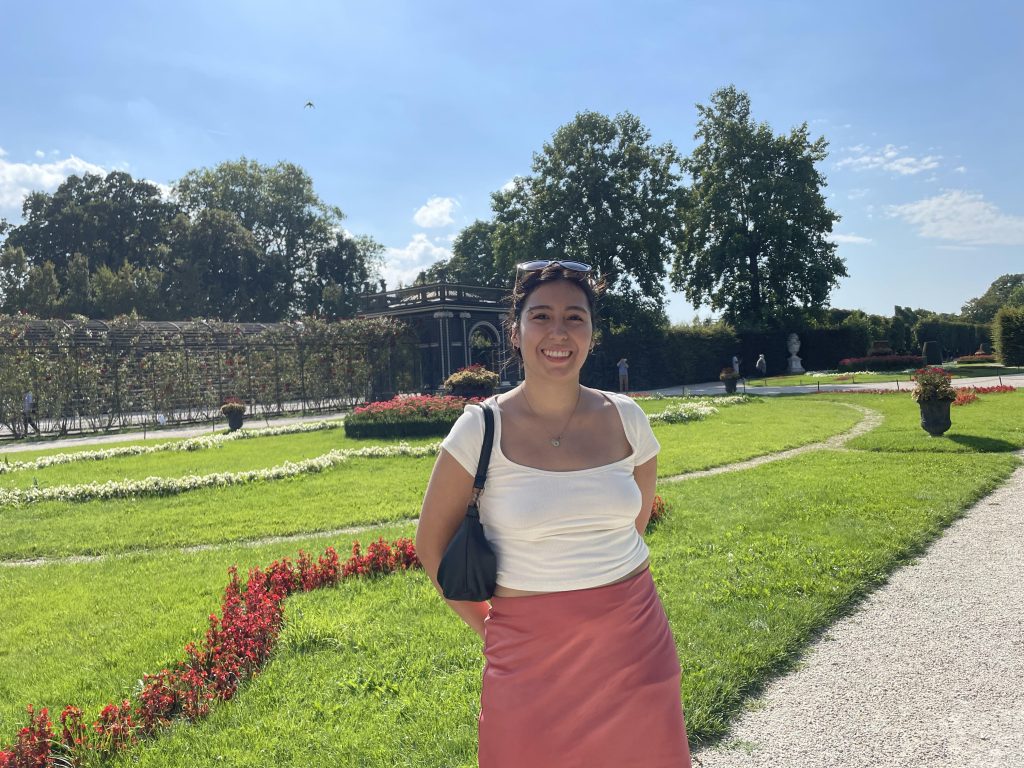Clarkson University senior Yadhira Garcia, a double major in Psychology and Social Sciences with a minor in Statistics from Vernon, NJ, recently co-presented the first results of a study looking at statistical thinking in children. Garcia presented the talk with Psychology Professor Andreas Wilke at the Adaptive Cognition & Economics in Society (ACES) research lab led by Dr. Christophe Heintz at the Central European University now based in Vienna, Austria.

Garcia presented early analysis research collected over this past summer during the McNair Scholars program, which they worked on with Nina Pluviose from St. Francis College in Brooklyn NY. The current study investigates the misperception of randomness, with a particular focus on children aged 3-10 years old.
“We’re basically investigating if children in these age groups tend to over-perceive ‘streaked’ or ‘clumpy’ patterns in random sequential data sets — as described by the hot-hand phenomenon — just as adults misperceive them, or at what point does our perception of randomness change through development,” Garcia explained. “Our research is parallel to previous studies on misperceptions of what randomness actually is statistically-speaking, versus what humans tend to believe is truly random. This has only been examined in adults. We believe this cognitive tendency is actually a human universal that has an adaptive purpose stemming back to hunter-gatherer era foraging practices in nature where resources are typically grouped or ‘clumped’ together.”
The opportunity to present research abroad was not only a formative educational endeavor, but it also provided them with an enriching cultural experience.
“The experience in Vienna was something so unreal to me,” Garcia said. “Coming from a small town, a small family, going abroad was my biggest dream. I feel so unbelievably lucky for this opportunity and I visited all sorts of museums, like the Gustav Klimt exhibit at the Belvedere Museum; historical sites like the Mozart exhibit, St. Anne’s cathedral where I went to a Mozart quartet orchestral concert; Schonbrunn Palace; cafes and restaurants and the Prater Ferris wheel and amusement park. This time I was traveling mostly on my own for about a week in a country where I didn’t know the language, but I had a great time exploring and trying every new thing I couldn’t get or do back home.”
The trip was a product of the close-knit community they felt part of in the Psychology department at Clarkson. Garcia said getting to know professors personally encourages open-mindedness and an environment of investigation.
“Hearing each of them talk about their research inspired me a lot, it was like I finally had a place where I could start learning what it means to be a researcher,” Garcia said. “I actually was initially more interested in the big-picture type of social-relational topics surrounding prejudiced attitudes coming into the department but later what I started to understand was that there were even deeper layers of where these come from that are complex and interrelated to our human development.”
For more information about Clarkson’s psychology program, visit clarkson.edu/psychology.